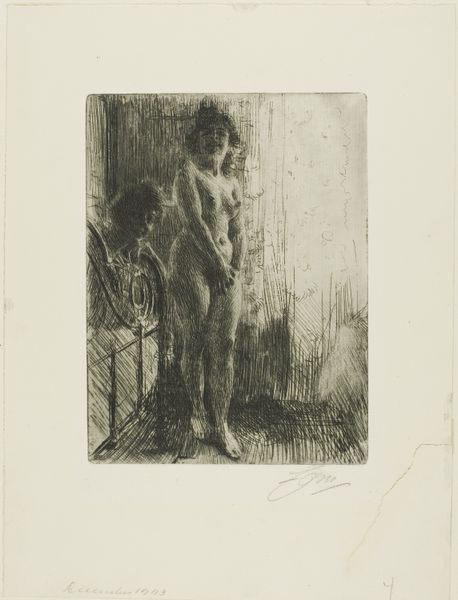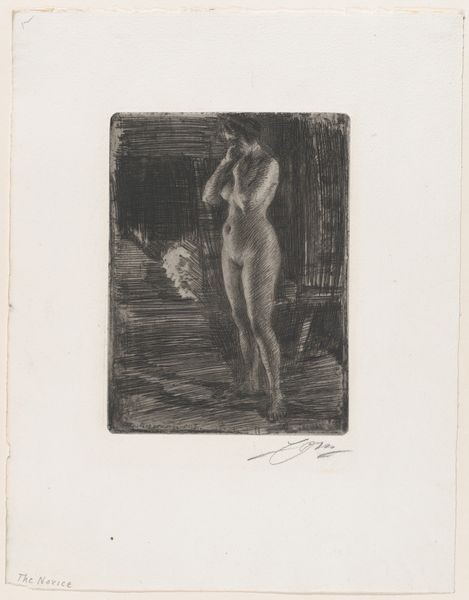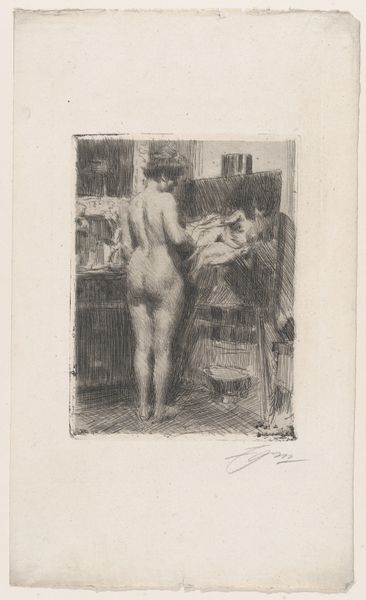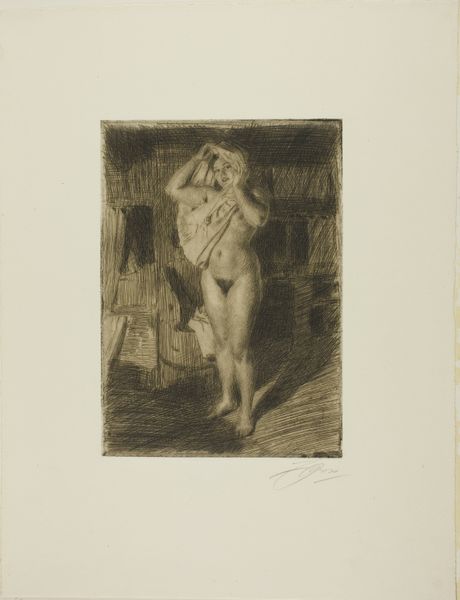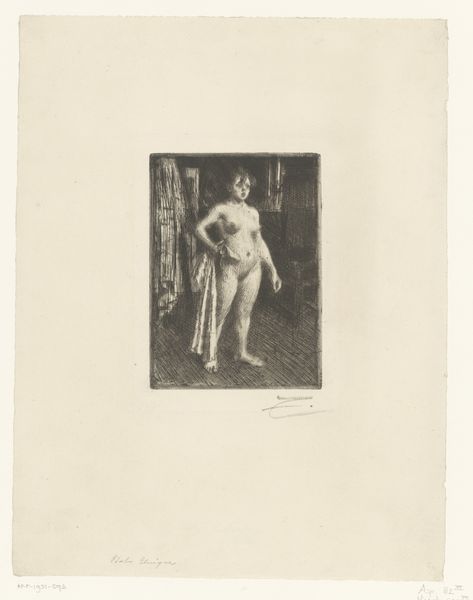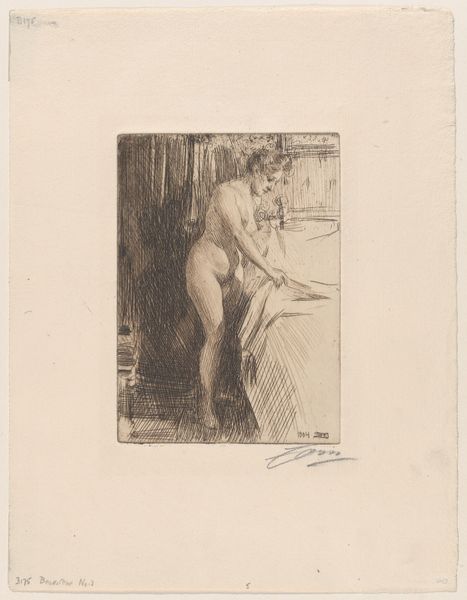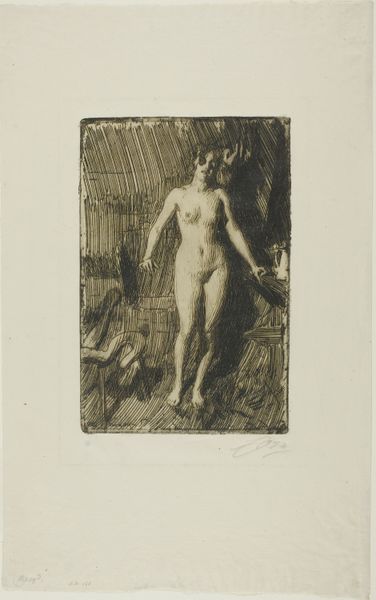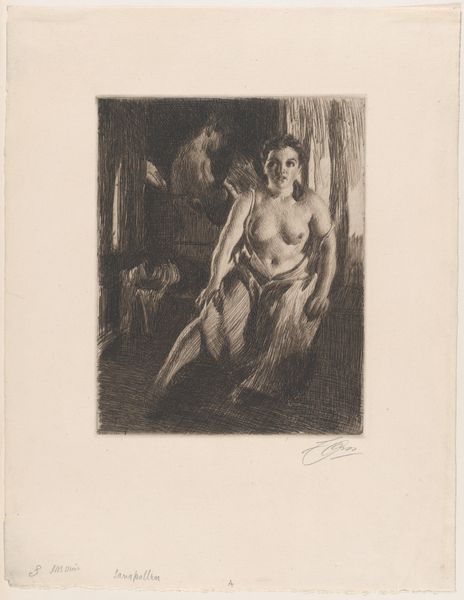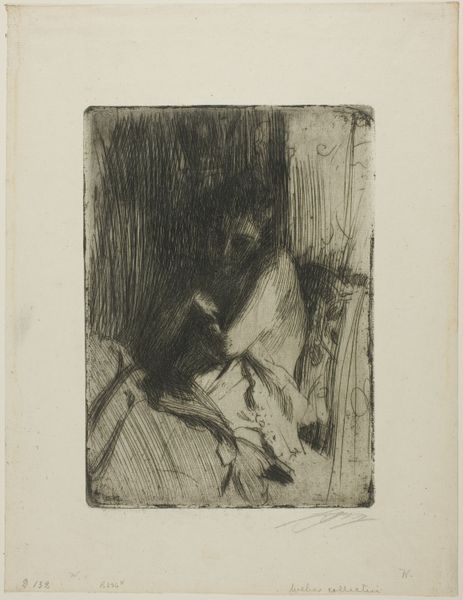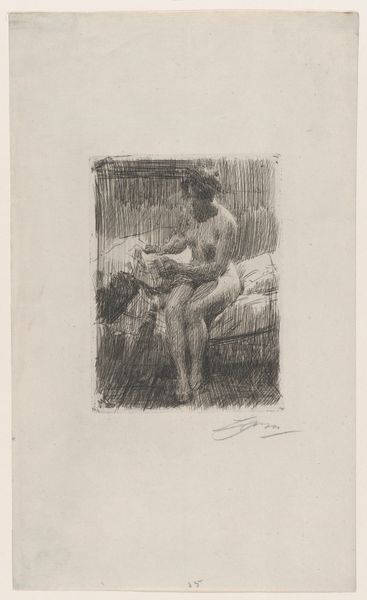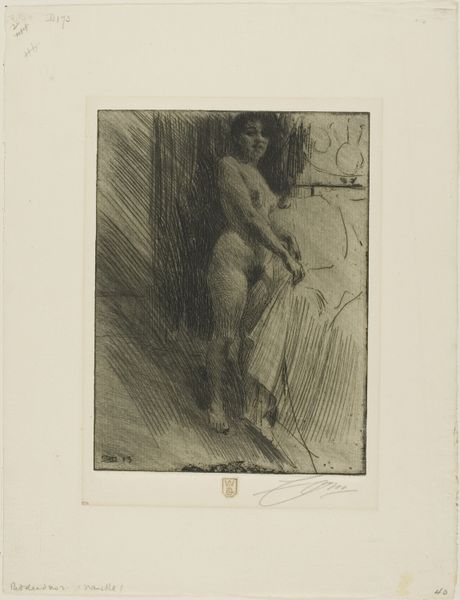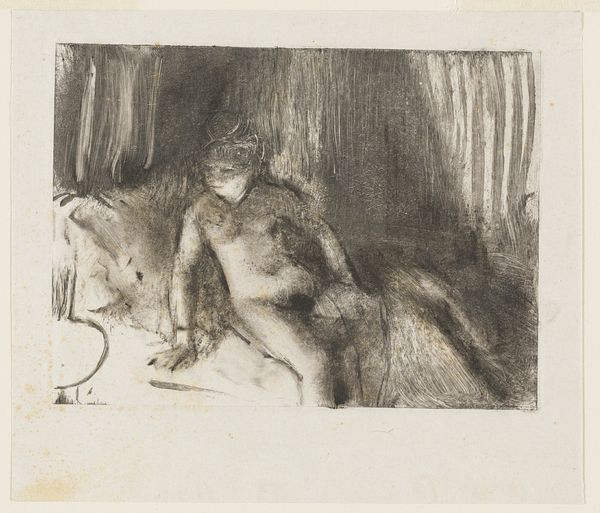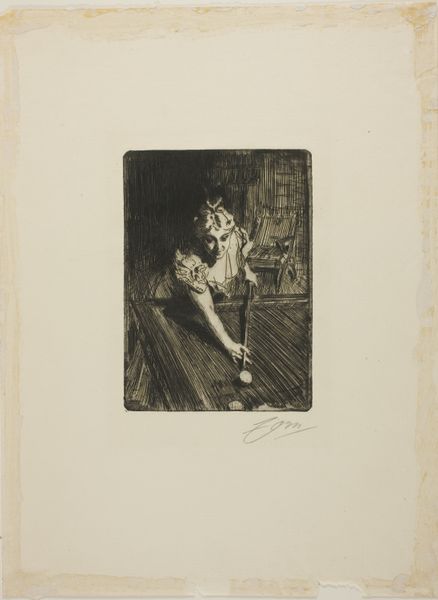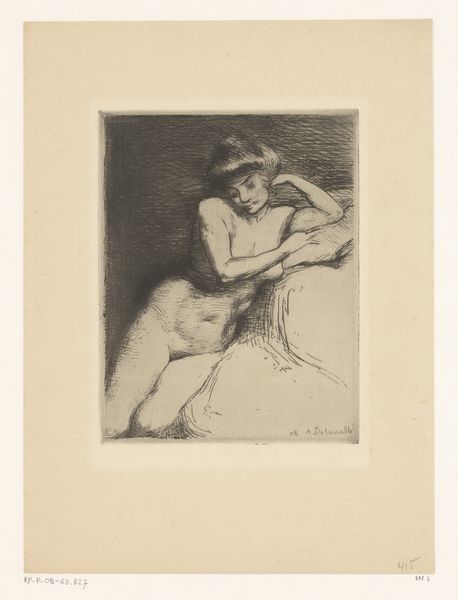
Dimensions: Plate: 7 7/8 × 5 7/8 in. (20 × 15 cm) Sheet: 12 3/16 × 9 3/16 in. (30.9 × 23.3 cm)
Copyright: Public Domain
Anders Zorn made this etching, "A Dark Corner," at the turn of the 20th century, a time of great social change. It depicts a nude woman standing near a window, seemingly indifferent to the man next to her. Zorn was Swedish, but spent much of his career in Paris, where modern art questioned academic traditions and explored new themes. In this context, Zorn's image reflects a fascination with urban life and its undercurrents of alienation. The title itself suggests something hidden. The woman's nudity, rather than being purely sensual, could be interpreted as a symbol of vulnerability or perhaps a commentary on the objectification of women in modern society. The dark corner and the obscured window also evoke feelings of unease. To understand the cultural meanings, scholars delve into the history of gender, sexuality, and artistic representation. We might ask how Zorn's image both reflected and challenged the prevailing social norms of his time. Art is never made in a vacuum, and its interpretation requires a careful consideration of its social and institutional context.
Comments
No comments
Be the first to comment and join the conversation on the ultimate creative platform.
